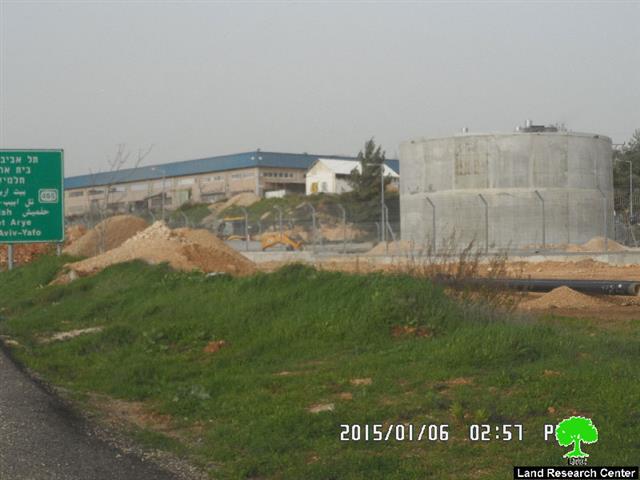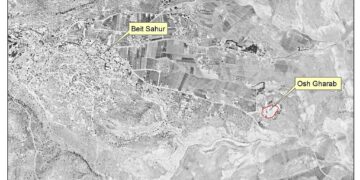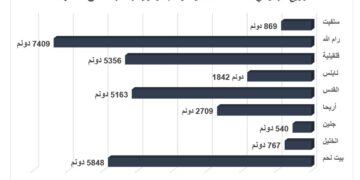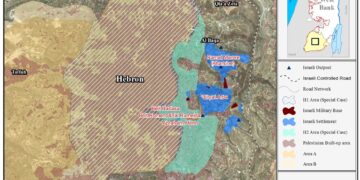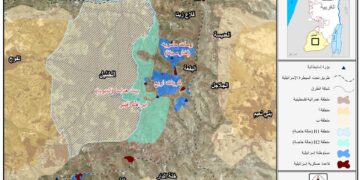Since the beginning of 2014, the Israeli occupation started excavation works and installed heavy machineries in the nearby of Halmish colony that is located on confiscated lands from al-Nabi Saleh village, northeast of Ramallah governorate. Reasons behind the excavations works were not revealed to public; suggestions and concerns arose in this regard. Palestinian sources suggested that the occupation is digging for gas after discovering gas fields in a nearby area. Other opinions suggested that the occupation is digging for water since the area is known for its huge water stack.
The occupation came by the beginning of 2015 and started construction works in the area; works were represented in building a new water tower and installing pipelines. This step was taken after declaring the area entirely closed.
The Israeli plan is still vague until today and no information are provided in regard of the project's aims.
Engineer Jihad Bashir from the Joint Technical Committee in Palestine Water Authority asserted the following :
" there are no certain information about Israeli intention behind the excavation works in the area; the Joint Committee submitted a objection on the works to the Israeli side, which was eventually refused. The occupation started the works without referring to the Palestinian side for it considers areas nearby colonies' borders Sate Lands".
Photos 1: the excavation site
Bashir also said: "while ago, it was noted that some Israeli geologists conducted surveying studies on many areas in the West Bank including the area nearby Halmish colony; such studies focus on digging for water and gas mostly".
The targeted lands belong to Mr. Saleh al-Tamimi; he is to file an official complaint "objection" in Israel Supreme Court to restore his land and to be able to use it again. The citizen's land is of 15 dunums in area (a dunam is the equivalent of 1,000 square meters ).
Legitimatizing the takeover of the West Bank natural resources:
It is indicated that Israel Supreme Court made a decision by 2012 allowing Israeli companies to use the natural resources in the West Bank for the favor of the state; the court justified this decision claiming itself the guardian on Palestinian properties until the establishment of Palestine as a state.
Based on the aforementioned, the occupation granted itself the right to control more than 80% of Palestine water resources and the ultimate right to extract oil and gas from Palestinian lands for the favor of state of Israel.
Also, natural stones were monopolized by Israel companies; many quarries and stone breaking sites were established on Palestinian lands where 94% of its revenue goes back to the Israeli occupation.
Noteworthy, the decision made by the Supreme Court in this regards entirely violates all international covenants and conventions; especially the Hague convention, which stated the following: "The occupant does not acquire ownership of immovable public property in the occupied territory, since it is only a temporary administrator. Subject to restrictions regarding their exploitation and use, it can nevertheless make use of public property, including natural resources, but it must safeguard their capital value, in accordance with the law of usufruct (H R, art. 55)".
Prepared by
The Land Research Center
LRC

